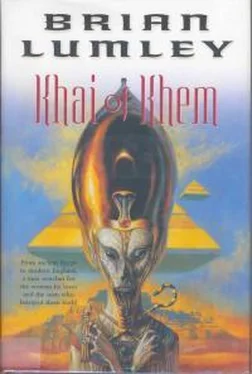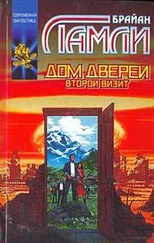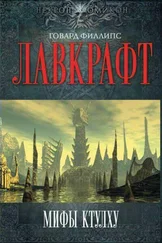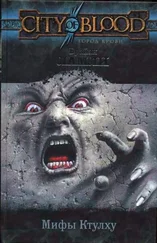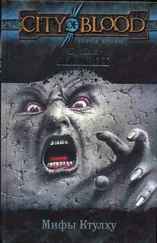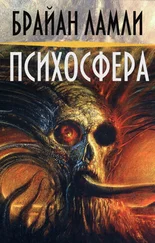“Lord, I have not seen you,” the guardsman turned away. “I have neither seen nor heard you. You are a shadow in the night.”
“Good,” said Khai. He turned back to the gap between the tent and the cliff, but again the Nubian caught him.
“Lord?”
“Yes?”
“Should I also be deaf and blind if my mistress calls out in the night?”
“She will not,” answered Khai. “Now get to your duty.” And in another moment the guardsman had melted with the shadows and was gone. But Khai could swear that he heard the man’s chuckle… .
Then … it was Khai’s dream all over again, that recurrent dream of his which seemed to have lasted through several lifetimes, except that this time there was no interruption. All else was exactly as it had been: the sandy floor (for the tent stood on the bed of an old stream which long ago had brought down centuries of sand from the heights), the chest of jewels (which Manek had brought out of Siwad, and which—if things did not go according to plan—Ashtarta would use as ransom money to buy the freedom of her commanders), even the color of the linen walls of the Queen’s bedchamber, which was purple.
As for the Candace: she of course was unaware of Khai’s dream; so that when the time came for her to open her body to him she could not understand the curse that escaped his lips, the gritting of his teeth, the way his face twisted in sudden agony—and his sigh of relief when he realized that the time had come and gone and still there had not been that sudden alarm, that nerve wrenching blast of sound which invariably destroyed the dream at this point.
For it was no longer a dream, it was real, and at last Khai felt that he was a whole, complete person. Time and space and the voids between had come together for him in the here and now. Dreams and fancies were suddenly one with reality, a huge puzzle snapping together, and the universe closed in on Khai and his Candace and took them to its bosom… .
… In the morning, as the sun came up and turned the eastern horizon to mist-haze, evaporating the last of the moisture from the land between Kush and Khem, the wheels of war began to turn against Pharaoh. Rumbling down from the foothills and onto the early morning savannahs, the chariots and carts and armored horsemen were splendid in their color, their eager ferocity, their relish of the battles to come.
Khai drove north—for Manek had not much cared to return to Siwad’s borders, and likewise Khai had had more than enough of Nubia’s jungles— and Manek drove south. The chief Genduhr Shebbithon, now a general in his own right, drove east for the Khemish fort at Pethos; and thus Ashtarta’s army was split into three parts.
Khai took the forts in Kuragh and Ghira in his stride and rushed on north, skirting the edge of the western swamp and heading for Tanos and the forest-land which led to the Nile. Manek took the Afallah fort and wiped out a large body of Khemites west of Peh-il, then rushed into Nubia to reinforce N’jakka’s black legions and slaughter Pharaoh’s forces where once more they had crossed the river. In little more than a week, all of Khem’s armies had turned from their preparations for full-scale assaults on Nubia and Siwad to form a front against Kush which reached from Mylah-Ton in the north to Subon in the south. West of the river, the Khemites camped in their thousands; and in Asorbes, where the Dark Heptad had now been ordered from their interminable task of seeking immortality for Khasathut to more pressing matters, Pharaoh pondered how best to employ them.
He knew now that his soldiers could not stand against the iron swords of Kush, and the chariots of the Kushites were terrible machines whose like had never before been seen in that ancient world. Sheer weight of numbers no longer mattered, for the new weapons of the Kushites made a mockery of all the old concepts of war. And this was where the Dark Heptad came into its own, for the Heptad’s concepts of war were also radically different—as Kush was soon to discover.
Another week passed in which Ashtarta’s armies consolidated their positions, took stock of the territories they had occupied, and deployed in regiments in the forests between the swamps and along the edge of the savannahs east of Daraaf. Nubia and Siwad were well in control of their own territories now and poised to strike when Kush struck; but Pharaoh had not been idle. Ferries had shifted thousands of mercenaries and hastily enlisted youths across the river along a vast front, and these now formed new regiments west of Asorbes, facing the distant camps of the Kushites.
But for all Khem’s might (her armies still outnumbered those of Kush and her allies by more than three to one), Khasathut knew that the actual strengths of his own and Ashtarta’s forces were evenly balanced, that Kush’s weapons had robbed him of his advantage. Hence the hurried intervention of the Dark Heptad. The first weapon those devotees of darkness chose from their arsenal of occult devices was common enough along the banks of the Nile: it was the rat, whose numbers were greater than the armies of Kush and Khem put together.
Pharaoh’s black magicians worked quickly and surely, for their new task was more to their liking and well within their capability. “Destroy Kush!” Pharaoh had ordered: “Wipe the Kushites out— Nubia, too—and Siwad! Do what you must, but destroy them. Destroy their armies—and bring their leaders, any that survive, to me!”
If this had been Pharaoh’s wish seven years earlier, then had it been carried out at once; but that would have been to deny him his source of slaves, the raw materials of his pyramid-building, the base upon which his empire was to be constructed. What use to be a ruler of empty lands? Now, however, it was far better to rule empty, destroyed lands than to relinquish sovereignty altogether. To relinquish life itself, before that life was fulfilled, before its ambitions were realized. Now the destruction of his enemies was necessary, essential to his own existence.
So the Dark Heptad invoked the Powers of Darkness and were advised, and accepting that advice, they recruited creatures of darkness to their cause….
Khai had taken Tanos two days ago. Now his army camped in the forest between Tanos and Mylah-Ton, on the edge of swamps which were more desiccated than ever before they had been. The Khamsin lay over the Nile, where a great curtain of dust hung in the eastern sky and darkened the heavens, but the signs of its passing were right here in the forest: yellow grasses and shrubs, trees whose branches and leaves drooped and were utterly dry to the touch.
It was night and Khai lay in his small tent and slept, getting his rest as best he might. Tomorrow he planned to advance on Mylah-Ton, and the day after that he intended to take it. His sleep was restless, however, and not alone from the heat which found its way here from the heart of Khem. No, for a dream kept coming and going, formless as a wraith, so that Khai tossed on his rough bed and sweated in a darkness lighted only by a small hanging fire-pot. Eventually, as the dream took firmer hold on him, he submitted to its spell and so gave it form.
… He stood beneath the stars on a hill in Rush with the Mage of Oneiromancy—the keen-eyed brown mage from Daraaf—and with Genduhr Shebbithon and Manek Thotak. Together they stood and looked eastward, toward Khem.
“You fought me, Khai,” said the brown mage, “with a will whose like I have rarely known. Did you not sense it was I, who not only read dreams but occasionally use them in other ways? No matter, for now you are here and I have a warning for you.”
“A warning?” Khai repeated.
“Aye, and it is this: that Pharaoh’s Dark Heptad have brought a monstrous ally against you, and that even now ten million feet race toward you in the night!”
Читать дальше
